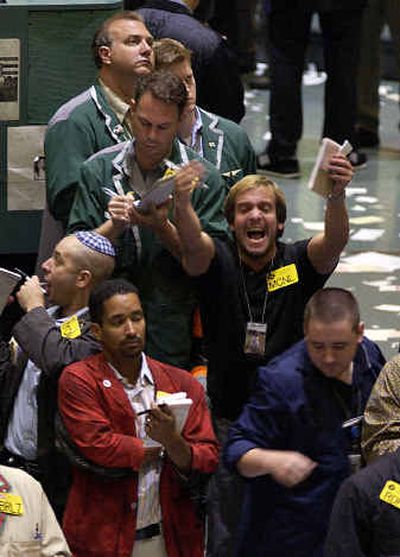Price of oil surges

WASHINGTON — Oil prices rose more than $2 a barrel and finished at a record level Tuesday as already jittery markets were jolted by the deadly weekend attack against Western oil workers in Saudi Arabia.
“The OPEC meeting is almost an afterthought,” said John Kilduff, senior energy analyst at Fimat USA in New York, referring to the oil cartel’s gathering in Beirut this week to discuss a possible supply increase.
The attack against two oil company compounds in Saudi Arabia on Saturday that killed 22 people — the second such incident in the country in one month — solidified traders’ fears that terrorists operating in the Middle East intend to target oil industry infrastructure and workers in an effort to disrupt the global supply chain.
These concerns have propped up prices $5 per barrel or more in recent months even though supplies have not been affected.
Oil futures settled well above $42 on Tuesday to a new high, although when inflation is taken into account crude is not as expensive today as it was during the energy crisis more than 20 years ago.
Light crude for July delivery settled at $42.33 per barrel, up $2.45, or 6 percent, on the New York Mercantile Exchange. The previous record closing price was $41.72, set on May 24.
On London’s International Petroleum Exchange, Brent crude from the North Sea rose $2.50 to $39.08.
Analysts say other factors that have kept the cost of oil around $40 a barrel in recent weeks include the unexpectedly strong global demand for oil, constraints in the U.S. refining industry, market speculation by hedge funds, and the Bush administration’s unwavering refusal to release crude supplies from the nation’s Strategic Petroleum Reserve.
The government “should at least stop filling it (the SPR) for now,” said Kilduff, echoing a growing number of analysts concerned about tight supplies.
The worldwide surge in oil prices has prompted Saudi Arabia, the global leader in crude production, to increase its daily output and to propose that the Organization of Petroleum Exporting Countries boost its daily production quota of 23.5 million barrels by more than 2 million barrels.
Saudi officials have expressed worries that a prolonged period of higher oil prices could harm the global economic recovery and reduce demand. OPEC is scheduled to meet Thursday.
“I think this terror attack almost assures that OPEC will raise production,” said Phil Flynn, an analyst at Alaron Trading Corp. in Chicago. “It could unify OPEC against the terrorists.”
Still, such sentiments failed to calm markets Tuesday, when the Saudi attacks were still fresh in traders’ minds and some speculated that oil prices could eventually top $50 a barrel if terrorists succeeded in disrupting supplies.
Gasoline futures were also propelled higher. Unleaded gasoline for July delivery gained 6.55 cents to $1.3530 per gallon on Nymex.
Nationwide the average retail price of gasoline is above $2.05 per gallon.
In other Nymex trading, July heating oil futures settled at $1.06 per gallon, up 6.12 cents, and natural gas futures rose 23.9 cents to $6.681 per 1,000 cubic feet.